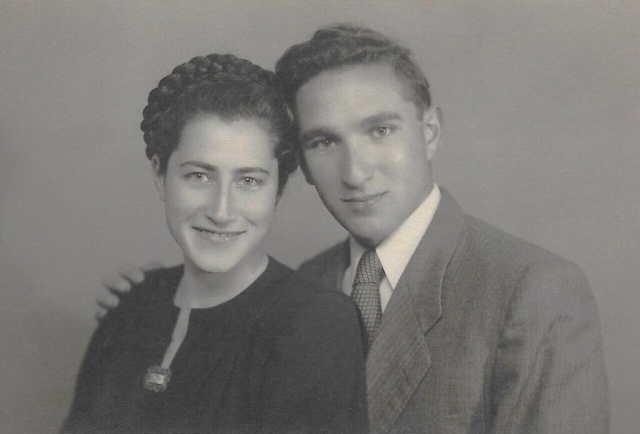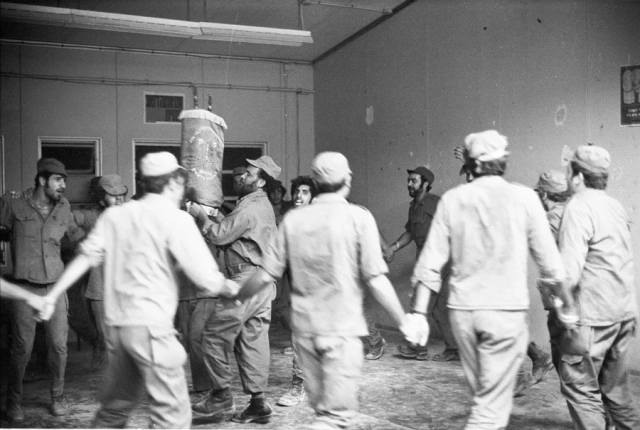
- Details
- The Judean Staff
- Israel History
The Early Years: Formation of the State and Initial Exemptions (1948-1960s)
1948: Establishment of the State and Military Conscription
When Israel declared its independence in 1948, it immediately faced existential threats from neighboring states. The nascent nation instituted compulsory military service for Jewish men and women to build a strong defense force. Initially, the draft included all eligible citizens, with men serving three years and women serving two years.
Exemptions for Yeshiva Students
Given the significant contributions of Jewish religious scholars, David Ben-Gurion, Israel’s first Prime Minister, agreed to exempt a small number of yeshiva (religious seminary) students from military service. This arrangement was intended to preserve the Jewish religious tradition and cater to the small ultra-Orthodox community. The initial exemption was granted to about 400 students and was seen as a temporary measure.
Expansion and Controversy: 1970s-1990s
Growth of the Ultra-Orthodox Population
Over the decades, the ultra-Orthodox community grew substantially, increasing the number of exemptions. Political pressures from religious parties within coalition governments led to the continued expansion of these exemptions.
1977: The "Tal Committee"
In response to growing public dissatisfaction, the government established the Tal Committee to explore solutions to the exemption issue. The committee recommended that yeshiva students be allowed to defer their military service, essentially allowing them to choose between continued study and enlistment after a certain age. However, the recommendations were not fully implemented.
1999: High Court of Justice Ruling
Israel's High Court of Justice ruled that the existing arrangement was unconstitutional and demanded legislative action to address the imbalance. The ruling underscored the need for a more equitable system of military service.
Legal Reforms and Continued Debate: 2000s-Present
2002: The Tal Law
In response to the High Court’s ruling, the Knesset passed the Tal Law, which aimed to create a more structured framework for military deferrals and eventual enlistment of ultra-Orthodox men. The law allowed yeshiva students to defer service until age 22, after which they could choose a "decision year" to either continue their studies, perform civilian national service, or join the military.
2006: Supreme Court Challenges
The Tal Law faced several challenges and criticisms for being ineffective and failing to significantly increase ultra-Orthodox enlistment. In 2006, the Supreme Court extended the law’s validity but demanded more concrete results.
2012: Invalidating the Tal Law
The Supreme Court ruled the Tal Law unconstitutional, stating that it did not meet the criteria for equality and fairness in mandatory military service. This decision created a legal vacuum and renewed debates on how to integrate the ultra-Orthodox community into the IDF.
2014: New Draft Law
In 2014, the Knesset passed a new law mandating the gradual increase of ultra-Orthodox enlistment with set quotas. The law aimed to impose sanctions on yeshivas failing to meet the quotas and to provide incentives for ultra-Orthodox men to join the military. However, political pushback and coalition dynamics have hindered its full implementation.
Recent Developments: 2017-Present
2017: Supreme Court Ruling
The Supreme Court struck down the 2014 draft law, ruling it discriminatory and insufficiently effective in addressing the equality of service obligations. The court's decision called for a new law to be passed within a year.
Continued Extensions and Delays
Despite the court’s ruling, the government has repeatedly delayed the implementation of a new draft law, extending existing exemptions and failing to pass comprehensive legislation.
2023: Unanimous Supreme Court Ruling
In a landmark ruling, the Supreme Court ordered the government to begin drafting ultra-Orthodox Jewish men, marking a significant shift towards enforcing equal service obligations. This decision seeks to end the decades-long system of broad exemptions and mandates immediate legislative action.
Conclusion
The history of draft laws in Israel reflects the ongoing tension between maintaining a robust defense force and accommodating the religious commitments of the ultra-Orthodox community. Each legislative attempt to address this issue has faced significant challenges, highlighting the complexity of balancing national security with religious and social considerations. The recent Supreme Court ruling represents a pivotal moment, aiming to bring about a more equitable system and potentially reshaping Israeli society's approach to military service.





